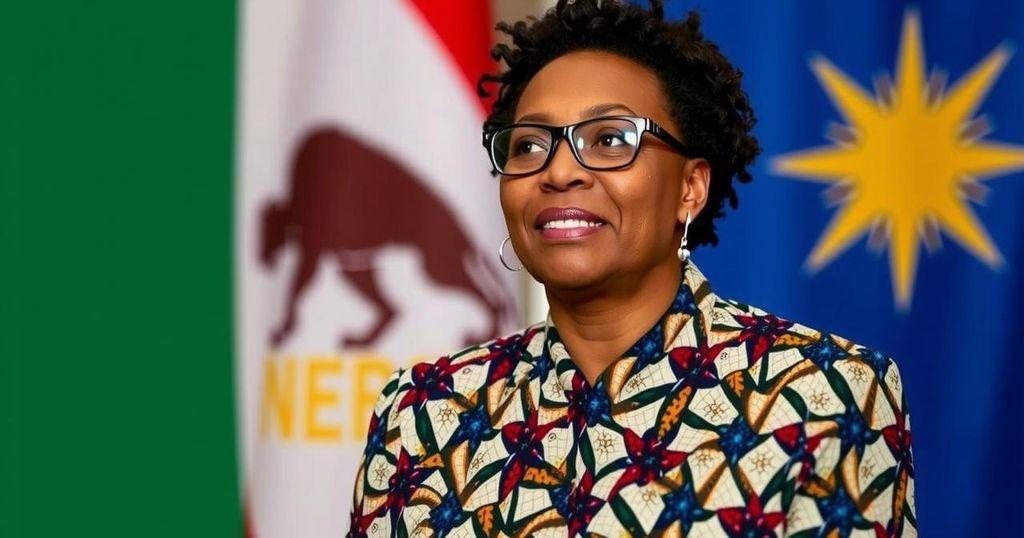Netumbo Nandi-Ndaitwah is poised to become Namibia’s first female president after securing over 58% of the votes in a contested election against Panduleni Itula, who received over 25%. Despite Nandi-Ndaitwah’s lead, Itula’s party plans to dispute the results due to alleged electoral malpractice, raising questions about the integrity of the electoral process in Namibia, where Swapo has been the ruling party since independence in 1990.
Namibia is on the brink of a historic electoral milestone as Netumbo Nandi-Ndaitwah, representing the governing South West Africa People’s Organization (Swapo), is poised to become the country’s first female president. With over 90% of the votes counted from last week’s contested election, Nandi-Ndaitwah reportedly secured more than 58% of the vote, while her main competitor, Panduleni Itula of the Independent Patriots for Change (IPC), garnered just over 25%. Despite the apparent victory, Itula has indicated his party’s intention to dispute the results, citing allegations of electoral malpractice stemming from logistical issues that led to polling being extended in some regions. Swapo has maintained political dominance since Namibia’s independence in 1990, having played a pivotal role in the anti-apartheid struggle. Observers noted speculation regarding Swapo’s prospects ahead of the election, especially in light of recent electoral setbacks suffered by similar liberation parties in the region.
A seasoned political leader, Nandi-Ndaitwah has served in prominent government roles for 25 years and is currently the vice-president. Her potential presidency would place her among a select group of female leaders in Africa, with Tanzania’s Samia Suluhu Hassan being the sole female president on the continent. To avoid a runoff, a presidential candidate must achieve more than 50% of the votes. Meanwhile, Itula, who presents a charismatic challenge to Swapo, reduced the party’s vote share significantly in the previous election, and has vowed to seek legal redress regarding the election’s management. The IPC is actively encouraging affected voters to report issues to the authorities.
The landscape of Namibian politics has long been shaped by Swapo, which has been in power since the nation’s liberation from apartheid South Africa in 1990. Elections in Namibia are critical events that not only reflect the political mood of the country but also the broader trends seen in Southern Africa, where liberation movements have sometimes struggled to retain power in the face of rising opposition. Nandi-Ndaitwah’s candidacy for the presidency comes at a time when the region is witnessing significant political changes, with other historic parties losing ground. Her ascendance to the presidency would mark an important step towards gender representation at the highest levels of government in a region characterized by patriarchal structures.
The electoral developments in Namibia highlight the potential for a significant political shift as Netumbo Nandi-Ndaitwah approaches a victory that would make her the first female president of the country. However, the opposition’s challenge to the election results underscores ongoing tensions in Namibia’s political landscape. As citizens and political actors alike navigate these developments, the outcome of this election may set crucial precedents for accountability and representation in Namibian politics. Whether Nandi-Ndaitwah will take office amidst challenges will significantly impact the nation’s future trajectory.
Original Source: www.bbc.com






